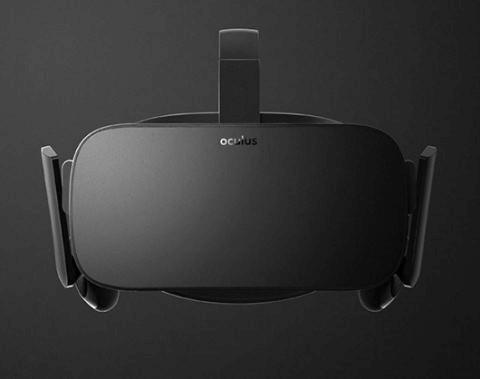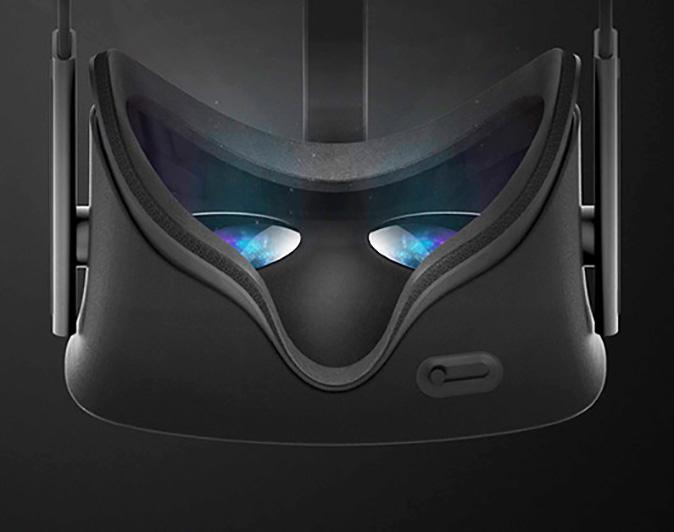Nearly three years after the project began on Kickstarter in the summer of 2012, a release date for the Oculus Rift virtual reality headset has finally been set—pre-orders can be made later this year, and will ship in the first quarter of 2016.
Oculus made the bare-boned announcement on its blog Wednesday, adding that technical specifications about the hardware, input, and made-for-VR games will be discussed in the coming weeks.
“Virtual reality is going to transform gaming, film, entertainment, communication, and much more,” the company wrote on its blog.
A number of video games are compatible with the Oculus platform, although the unreleased space fighter multiplayer EVE Valkyrie is the only made-for-VR game so far.

The front side of the Oculus Rift. Oculus





